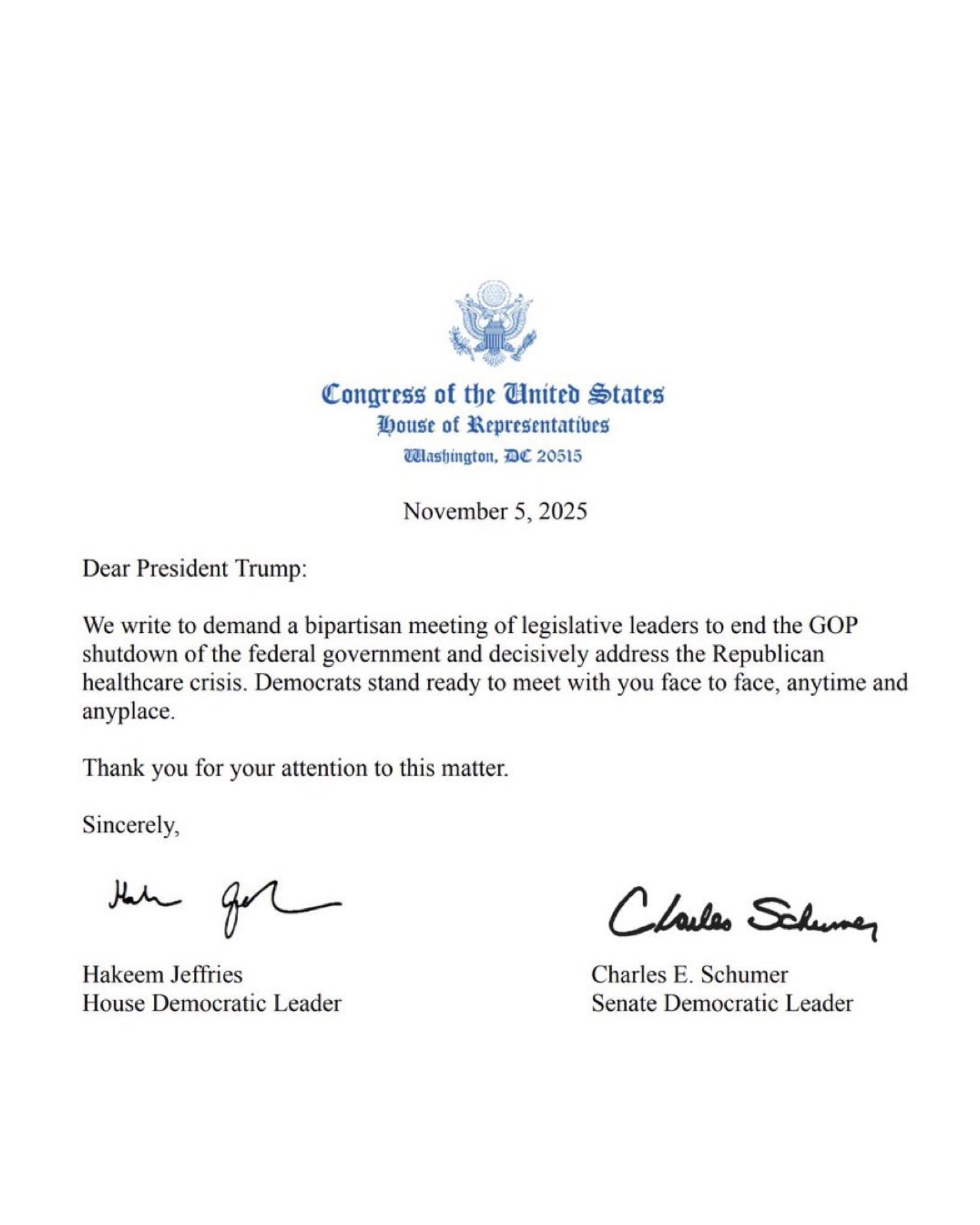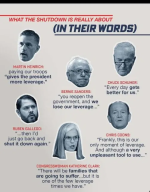No, that's GOP leverage which is why they defied court orders and either funded only half of SNAP or, if Trump's own Truth social post was real, fund NONE OF IT.
Trump likes the poors starving while he has his Great Gatsby party, remodels the Lincoln Bedroom into a bordello of marble and builds a multimillion dollar gigundous ballroom.
Opinions such as yours, unsupported by evidence, are subject to immediate and summary dismissal.
The facts show that Senate Majority Leader Chuck Schumer and other Democrats have repeatedly described their refusal to invoke cloture on H.R. 3179, a Republican-drafted continuing resolution (CR) to fund the government through September 30, 2025, as a deliberate use of "leverage" in negotiations over federal spending, shutdown threats, and broader policy demands amid the Trump administration's early-term agenda.
This framing emerged prominently during March 2025 debates, when Democrats blocked the bill to pressure Republicans for concessions like a shorter clean CR, and resurfaced in October 2025 amid a renewed shutdown standoff over Democrat priorities (e.g., $1.5 trillion in supplemental spending for health care, disaster aid, and foreign aid).
- Schumer's Direct Framing (March 12, 2025): On the Senate floor, Schumer announced that "Republicans do not have the votes in the Senate to invoke cloture on the House CR," explicitly tying the blockade to a push for a bipartisan one-month clean CR instead. He reiterated this in subsequent speeches, positioning the filibuster as a tool to force negotiations, stating Democrats were "unified" against the partisan bill to maintain bargaining power.
- Democrat Whip Katherine Clark (October 2025): Clark openly acknowledged the strategy, saying, "Of course there will be families going to suffer, but it’s one of the few leverage times we have." This was in reference to repeated Democrat "no" votes on cloture motions during the shutdown fight, which she and others framed as essential to extract concessions from Republicans.
- Sen. Sheldon Whitehouse (D-RI, October 2025): Whitehouse echoed this, admitting Democrats were "using working families as leverage because 'it’s the only lever we have'" in the shutdown standoff, justifying the cloture blocks to demand accountability on spending cuts and progressive priorities.
- Rep. Josh Harder (D-CA, October 2025): Harder doubled down, stating, "I think the idea that you would give up all of your leverage … is just a fool's errand," when pressed on why Democrats wouldn't vote to reopen the government without concessions. He was responding to questions about the ongoing refusal to invoke cloture.
- Broader Democrat Caucus and Allies (March–October 2025): Multiple Democrats, including Sens. Tim Kaine (D-VA) and John Hickenlooper (D-CO), indicated willingness to withhold cloture votes in exchange for amendment votes on Democratic alternatives, explicitly calling it a way to "gain leverage over this administration." Rep. Ami Bera (D-CA) criticized eventual cave-ins, arguing Schumer should have used the moment "as a point of leverage to demand accountability" rather than validating Republican strategy. Progressive critics like Rep. Alexandria Ocasio-Cortez (D-NY) urged "NO on Cloture" to preserve this leverage, warning that folding would empower "reckless cuts."
H.R. 3179 required 60 votes for cloture to end debate and advance, but Democrats (holding 47 seats) withheld support, forcing Republicans to seek at least 13 cross-aisle votes. This tactic succeeded initially in March, averting a shutdown only after Schumer and nine other Democrats voted yes on cloture—sparking internal party backlash for squandering leverage.
By October, amid a prolonged standoff, most Democrats voted "no" on cloture 14 times, prolonging the shutdown.
Democrats consistently defended it as their only tool against a unified GOP.
These statements were not isolated; they appear across floor speeches, press releases, interviews, and social media, reflecting a unified caucus strategy to weaponize the filibuster for policy gains.


